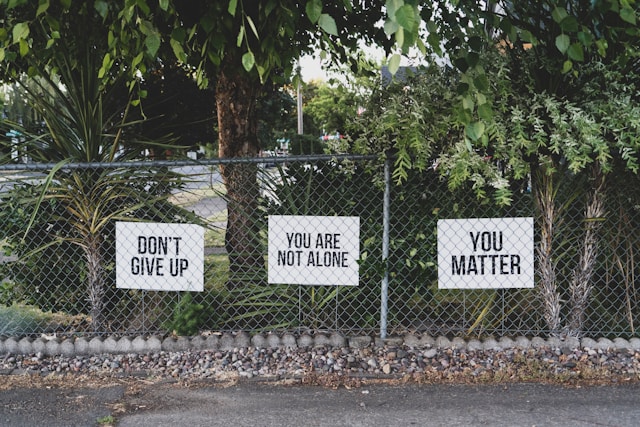Ah, men and mental health. Two things that, for centuries, have gone together about as well as Marmite and jam. Traditionally, men have been taught to bottle up their feelings like a fine whiskey—just stronger with age and left to ferment. But we live in a new era now, where the idea of “stiff upper lip” is being swapped for a bit more honesty, and dare I say it—vulnerability.
Yet, it’s not as easy as flipping a switch. Men from different cultures and backgrounds face unique pressures when it comes to mental health, but here’s the kicker—it all boils down to one core issue: the stigma.
Let’s Talk About Stigma, Shall We?
Men, bless them, have historically been told to “man up,” a phrase that makes me wince every time I hear it. This little nugget of toxic wisdom suggests that emotions are something to be suppressed, locked away like the crown jewels—untouchable, hidden, only to be admired from a distance.
But the truth is, the crown jewels occasionally need a bit of polishing, and so does a man’s emotional wellbeing.
A Global View
Now, mental health stigma isn’t just a British problem; it’s a global phenomenon. In many African and Asian cultures, for example, the image of the “strong man” is deeply ingrained. Men in these communities are often seen as pillars of support—invincible, unshakable. Admitting to any form of mental vulnerability? Well, it’s seen as being as effective as bringing a salad to a barbecue. It just doesn’t fit the stereotype.
In Latin America, there’s even a term for this machismo mentality—machismo, which roughly translates to “macho-ness” (although that’s not really a word, but you get the idea). In these cultures, men are expected to maintain an aura of dominance and emotional fortitude, leaving little room for saying, “Actually, mate, I’m not doing so well.”
Closer to home, in Britain, men have long held to the old-fashioned idea that emotional problems should be dealt with quietly, or even ignored altogether—like finding a spider in the bathroom and just hoping it disappears on its own.
When a Bad Day Becomes More Than a Bad Day
First things first, let’s talk about how you actually know when something’s not quite right. Mental health issues don’t always arrive with a flashing neon sign saying, “Here I am!” Sometimes, it sneaks up on you like a dodgy cold—the kind you think you’ve shaken off, but then it knocks you sideways out of nowhere.
Signs to Watch For..

We all have off days, but if your bad mood has become your default setting, it’s worth taking note. If you’re finding yourself unmotivated, disinterested in things you used to enjoy, or just feeling low for long stretches of time, that’s a red flag.
- Constant Stress or Anxiety: A bit of stress now and then is normal, but if your stress levels are consistently through the roof, and you’re feeling anxious over small things or nothing at all, that’s a sign things need to change.
- Changes in Sleep or Appetite: Sleeping too much or too little, losing your appetite, or turning to comfort food more often than you should? These are often the body’s way of signaling that your mental health needs attention.
- Anger and Irritability: Let’s be real here—when mental health goes unchecked, it can come out sideways, like snapping at loved ones or flying off the handle over small frustrations. If your patience has worn thin and you’re more irritated than usual, it’s time to check in with yourself.
- Social Withdrawal: Suddenly finding excuses not to meet up with your mates or avoiding social situations you used to enjoy? Isolation is often a big indicator that something deeper is going on.
Now, if you’ve read this far and thought, “Hold on, that’s a bit of me,” don’t panic. Acknowledging there’s a problem is the first, and possibly the most important, step in taking care of yourself.
How to Start Helping Yourself (Without It Feeling Overwhelming)
Okay, so you’ve recognized there’s something going on—what next? You don’t have to dive straight into therapy if you’re not ready for that (although more on that in a minute). There are smaller steps you can take that may help you feel a bit more in control of things.
1. Talk to Someone
Before you roll your eyes, bear with me. I don’t mean you have to open up to your entire football team or pour your heart out over the next pint. But confiding in someone you trust—whether it’s your partner, a close mate, or even your mum—can be surprisingly cathartic. Sharing what’s going on in your head can often make it feel a lot less overwhelming, like shining a light in a dark room.
2. Get Moving
Exercise is often called the “natural antidepressant,” and there’s a reason for it. When you work out, your body releases endorphins—the feel-good chemicals. You don’t have to start training for a marathon (unless that’s your thing), but a daily walk, a jog, or a bit of gym time can work wonders. It’s all about building momentum. Plus, it gives you time to clear your head.
3. Focus on Sleep
Sleep is essential for mental health, and yet it’s the first thing to go when you’re stressed or feeling low. Creating a routine can help—try going to bed at the same time each night and cutting down on caffeine or alcohol before bedtime. You’d be surprised how much better you’ll feel after a good night’s sleep.
4. Limit Alcohol and Drugs
It’s all too tempting to reach for a drink when you’re feeling down. It’s easy, it’s socially acceptable, and for a moment, it can feel like the world isn’t so heavy. But alcohol is a depressant, and while it might take the edge off temporarily, it’ll usually make you feel worse in the long run. I’m not saying you have to go teetotal—just be mindful.
5. Practice Mindfulness or Meditation
Before you scoff and think, “I’m not about to sit cross-legged and hum,” hear me out. Mindfulness is simply about being present, paying attention to what’s happening right now instead of spiraling into future worries or past regrets. Apps like Headspace or Calm make this easy and accessible, even for the most cynical of us.
6. Set Boundaries at Work
Many men take pride in being hardworking, dependable, and, let’s be honest, often overworked. But burnout is real, and constantly pushing yourself to the limit at work can take a serious toll on your mental health. Learn to say no. Set clear boundaries. You’re not a machine—you’re allowed to switch off now and then.
The Overlooked
While we’re on the subject, let’s talk about some things that don’t get enough airtime in mental health discussions but are incredibly crucial.
1. Vulnerability Is Strength, Not Weakness
It’s often assumed that vulnerability is something men should avoid at all costs. After all, the classic idea of masculinity tells us that men are supposed to be strong, unemotional, and always in control. But here’s the truth: being vulnerable—opening up, admitting when you’re struggling, asking for help—is one of the bravest things you can do. It takes strength to let down the walls.
2. You’re Not Alone
One of the most damaging aspects of mental health struggles is the feeling of isolation, like you’re the only one dealing with it. The truth? So many men are in the same boat, but we don’t talk about it nearly enough. Whether you join an online community, attend a support group, or simply talk to a mate, knowing you’re not alone is a game-changer.
3. Get Comfortable with the Uncomfortable
Mental health doesn’t always improve in a straight line. There will be days when you feel better and days when you don’t. The key is to get comfortable with that discomfort, knowing that setbacks are normal. It’s like going to the gym—progress takes time, and sometimes it hurts, but the long-term benefits are worth it.
4. Therapy Is for Everyone
Therapy often gets written off as a last resort or something only for those in crisis, but it’s actually for everyone. Think of it like taking your car in for a service—it’s not about waiting until it breaks down, but about keeping everything running smoothly. And no, therapy isn’t just for “talking about your feelings”; it’s about finding practical strategies to cope, grow, and thrive.
The Support System
But here’s the silver lining: mental health support systems are growing, and they’re there for a reason. From mates at the pub to more formal support groups like Mind or CALM (Campaign Against Living Miserably), there are places to turn to, even if you’re not ready for therapy. Therapy, by the way, is not just lying on a sofa while some bloke with glasses psychoanalyzes you like you’re a character in a Sherlock Holmes novel. It can be talking to someone who knows what to say, and that’s a massive relief.

Even workplaces are getting in on the action. You’ve got mental health days and employee support programs, which is the corporate world’s way of saying, “It’s okay to not be okay.” Progress! It’s like upgrading from instant coffee to a nice artisan brew—you didn’t know you needed it, but once you’ve had it, you feel so much better.
The Takeaway
At the end of the day, men’s mental health matters—no matter where you’re from or what culture you grew up in. Whether you’re dodging the stereotype of the British stiff upper lip, dismantling “machismo,” or redefining manhood in your own terms, talking about mental health is not a weakness, it’s a strength. So, grab a coffee, check in with yourself, and remember: it’s okay to not always be the strong, silent type. Sometimes, the bravest thing you can do is simply say, “I need a hand.”




Keep on writing, great job!